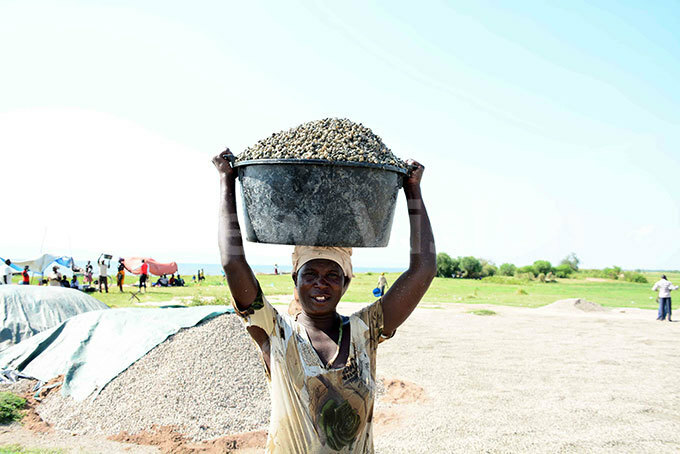Residents at Kisansa West Landing Site cash in on seashells
One of the fishermen only identified as George said many of them had abandoned fishing for a more lucrative venture as they keep their eyes focused on the oil ‘money’ in the near future.
It is a busy landing site. Here, men, women and children descend on the Lake and brave the scorching sun to scoop snail shells, also known as seashells from the water, for a living.
Kisansa West Landing Site on Lake Albert is located in the Tilenga Project, in Buliisa district in the Albertine region where a Central Processing Facility (CPF) for the oil and gas sector will be built with capacity to process over 190,000 barrels of oil per day.
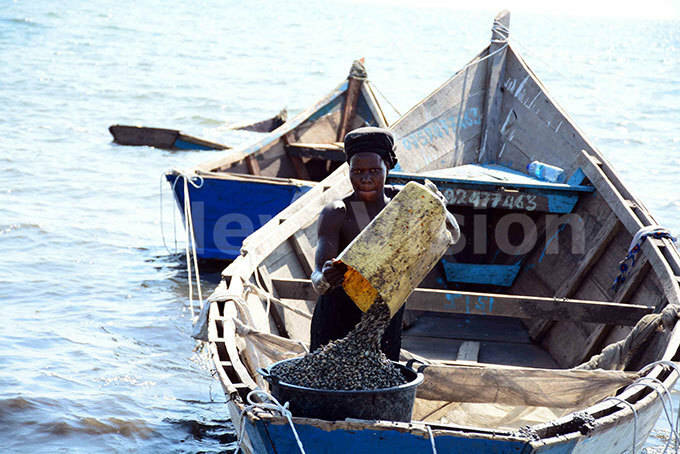
The oil will be sent to Hoima where a refinery is going to be built from where it will be sent in a pipeline to Tanga Port on the shores of the Indian Ocean in Tanzania, for export.
At the site, the visiting European envoys in Uganda were shown the proposed Water abstraction site, where water will be pumped from the Lake for the Tilenga Project proposed oil field.
The drilling of oil and gas is undertaken by Total, a French company, Tullow Oil and CNOOC (China National Offshore Oil Corporation).
But unbothered about the coming developments, residents of Buliisa have turned to the lake in big numbers to make quick money from scooping the ‘gold', as the seashells are referred to here.
One of the fishermen only identified as George said many of them had abandoned fishing for a more lucrative venture as they keep their eyes focused on the oil ‘money' in the near future.
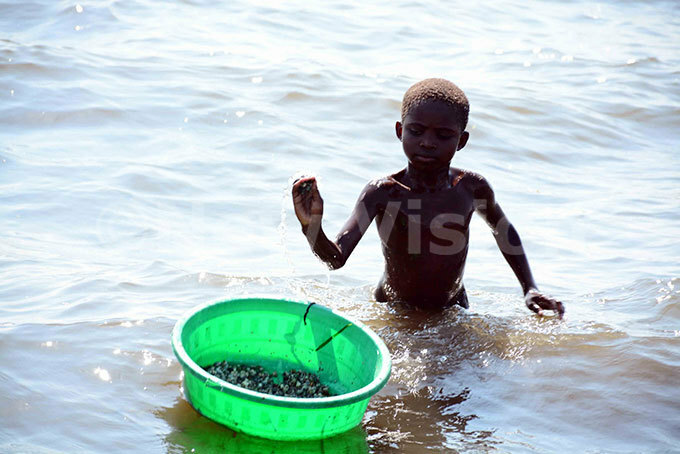
George said that he sells on site each sack of unprocessed seashells at sh15,000 and can collect between 8 to 10 sacks a day.
Women, untouched about personal wet clothes, make several rounds as they collect the damp shells direct from the Lake and make heaps offshore for drying and final selling. Some women pair up some scoop the shells as others collect them in plastic basins. This goes on for the biggest part of the day.
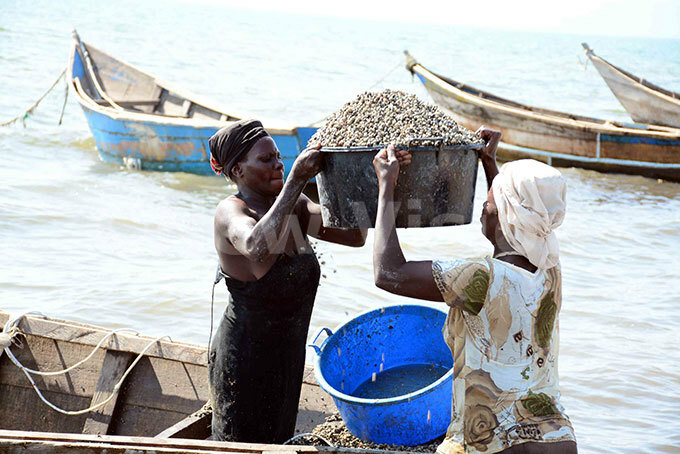
A few other women come here to cook and sell food and refreshments, the busy working residents say
They say the seashells are on high demand by traders who move from as far as Kampala and Jinja, which they too sell to poultry processing plants, where they are turned into chicken feeds.
It was not clear from Tullow or Total officials whether these residents stand a chance to continue earning from this business when the project takes off or they will be relocated.
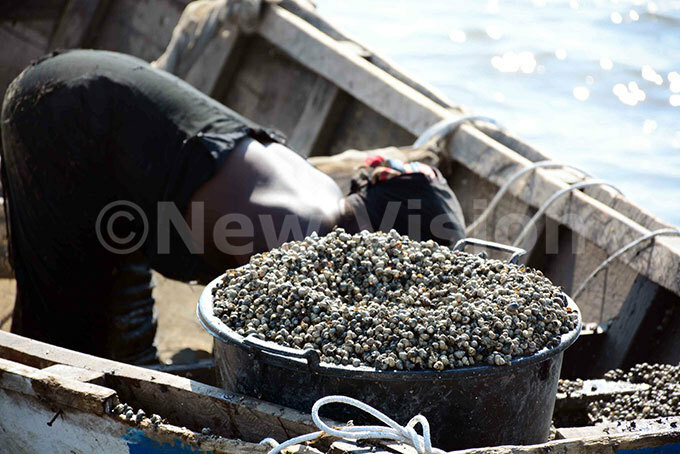
But the shells seem to have ‘chosen' the site because of the direction of the Lake winds, that collect and push them, normally towards where the winds are stronger.
The trade is also taking advantage of the increasing road network in the region, enabling transporters to access the site with ease because of the smooth roads.
